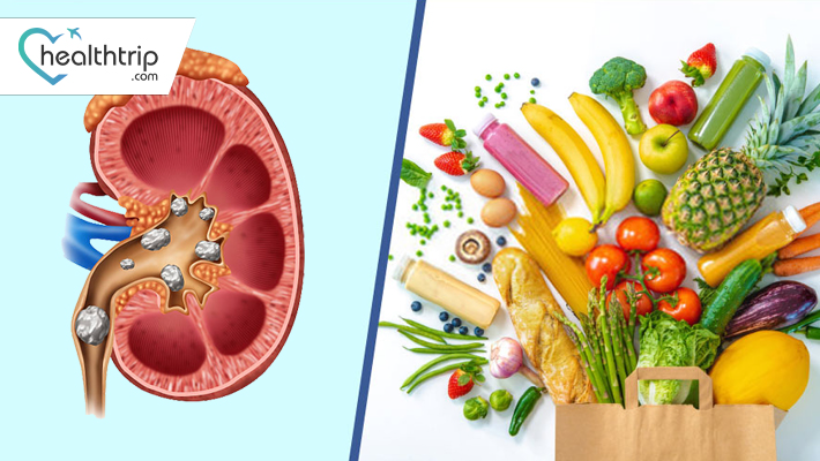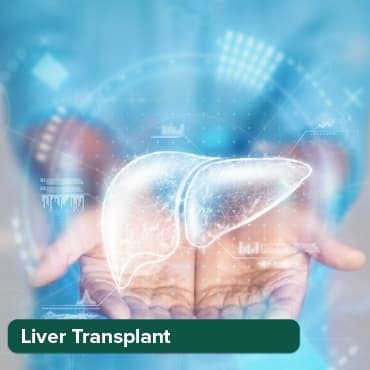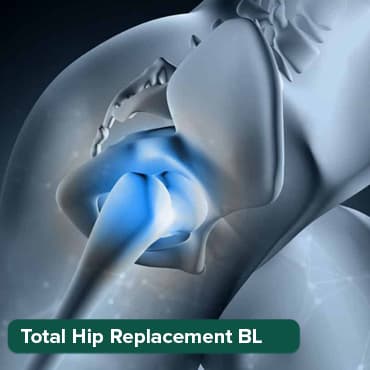
The Link Between Kidney Stones and Diet: Understanding the Role of Nutrition in Treatment
27 May, 2023
Kidney stones are a common condition that affects millions of people worldwide. They are small, hard deposits of minerals and salts that accumulate in the kidneys and can cause severe pain and discomfort. There are many factors that contribute to the development of kidney stones, including genetics, age and lifestyle. But diet is one of the most important factors. This blog explores the relationship between kidney stones and diet and explains how diet plays an important role in treating and preventing kidney stones.
What are kidney stones?
Before diving into the relationship between kidney stones and diet, it is important to understand what kidney stones are and how they form. Kidney stones filter waste products from the blood to produce urine. It is a solid accumulation of crystals that occurs in the kidney that plays a role. If the concentration of certain minerals in the urine becomes too high, they can stick together and form crystals, forming kidney stones.
There are different types of kidney stones, each made up of different minerals. The most common types of kidney stones are:
Transform Your Beauty, Boost Your Confidence
Find the right cosmetic procedure for your needs.

We specialize in a wide range of cosmetic procedures

Calcium stone:
These are the most common kidney stones and are made up of calcium oxalate or calcium phosphate.
Striate stones:
These are less common and are caused by bacterial infections of the urinary tract.
Uric acid stones:
These stones are caused by high levels of uric acid in the urine. This may be the result of a high purine diet.
Cystine stones:
These are rare and caused by genetic disorders that affect how the body processes amino acids.
Effect of Diet on Kidney Stones
Diet plays an important role in the formation and prevention of kidney stones. The foods we eat can affect mineral levels in our urine, which can increase or decrease our risk of kidney stone formation. Some of the major dietary factors that contribute to kidney stones are:
1. Foods Rich in Oxalates
Oxalic acid is a compound found in many plant foods such as spinach, beets, rhubarb and nuts. When taken in large amounts, oxalic acid can bind with calcium in the urine and form kidney stones. People who have had calcium oxalate stones in the past are often advised to limit their intake of oxalate-rich foods.
2. Animal protein
Eating a high-protein diet can increase uric acid levels in the urine, which can lead to the formation of uric acid stones.
Most popular procedures in India
Atrial septal defect
Upto 80% off
90% Rated
Satisfactory

Coronary Angiogram a
Upto 80% off
90% Rated
Satisfactory

Coronary Angiogram C
Upto 80% off
90% Rated
Satisfactory

Liver Transplant
Upto 80% off
90% Rated
Satisfactory

Total Hip Replacemen
Upto 80% off
90% Rated
Satisfactory

3. Sodium
a high-sodium diet increases the amount of calcium in the urine, which can lead to calcium stone formation. Sodium-rich foods include processed foods, canned soups and vegetables, and fast foods.
4. Sugar and fructose
Excessive intake of sugar and fructose can increase the amount of calcium and uric acid in the urine, increasing the risk of kidney stones. Sugary drinks, such as sodas and energy drinks are especially problematic.
5. Insufficient water intake
Hydration is important for preventing kidney stones because it helps dilute mineral concentrations in urine. People who don't drink enough fluids are at a higher risk of developing kidney stones.
How diet can help treat kidney stones
Diet is a significant risk factor for kidney stones, but it can also be an effective treatment strategy. Changing your diet can reduce your risk of future kidney stones and even dissolve existing ones. Below are some nutritional strategies that may help.
1. Increase your water intake
Hydration is essential for the prevention and treatment of kidney stones. Drinking lots of water can help wash this out Minerals and salts that contribute to the formation of kidney stones. Experts recommend drinking at least 8 to 10 glasses of water a day.
2. Limit sodium
Reducing your sodium intake can lower your risk of developing kidney stones. Aim for less than 2,300 milligrams of sodium per day. This is approximately the amount contained in one tablespoon of salt. Check food labels and choose low-sodium options whenever possible.
3. Reduce animal protein
If you have a history of uric acid stones, reducing your animal protein intake may help. This includes red meat, poultry, and seafood. You don't have to avoid these foods completely, but it's a good idea to limit your intake and choose plant-based protein sources instead.
4. Increase your citrus intake
Citrus fruits such as oranges, lemons and limes are high in citric acid, a compound that helps prevent the formation of kidney stones. Consume at least one serving of citrus fruit per day, or ask your doctor about taking a citric acid supplement.
5. Eat a balanced diet
Eating a balanced diet rich in fruits, vegetables, whole grains, and lean protein sources can help prevent kidney stones. Try to eat a variety of foods from food groups.
6. Consider a low oxalate diet
If you have had calcium oxalate stones in the past, your doctor may recommend a low oxalate diet. This includes avoiding oxalate-rich foods such as spinach, beets, rhubarb, nuts, and chocolate. However, be aware that not all kidney stones are caused by oxalic acid. It is important. Therefore, this approach is not necessary for everyone.
Conclusion
Kidney stones can be a painful and uncomfortable condition, but they can often be prevented with lifestyle changes, including a healthy diet. It can improve your overall health and well-being. If you've had kidney stones in the past, or if you're concerned about your risk, talk to your doctor or registered dietician about a personalised plan that works for you. By making the right diet and lifestyle choices, you can reduce your risk of kidney stones and improve your overall health.
Wellness Treatment
Give yourself the time to relax
Lowest Prices Guaranteed!

Lowest Prices Guaranteed!




